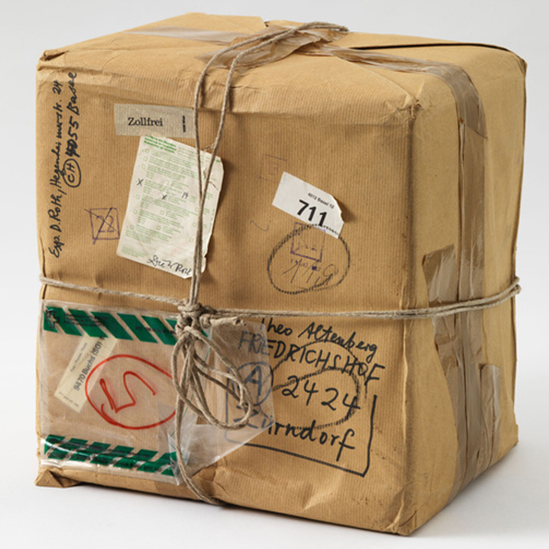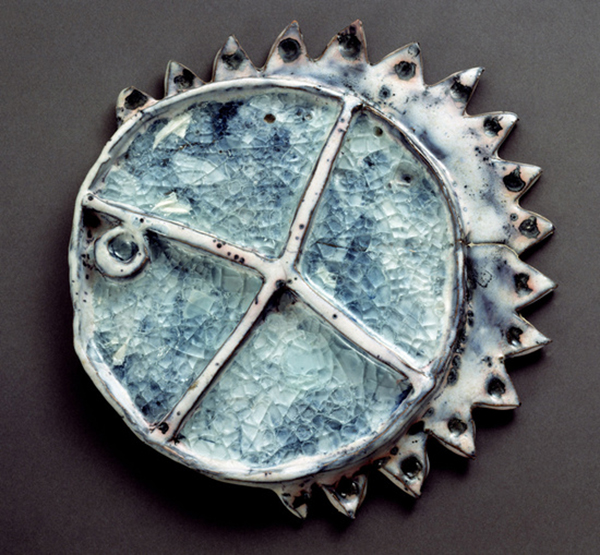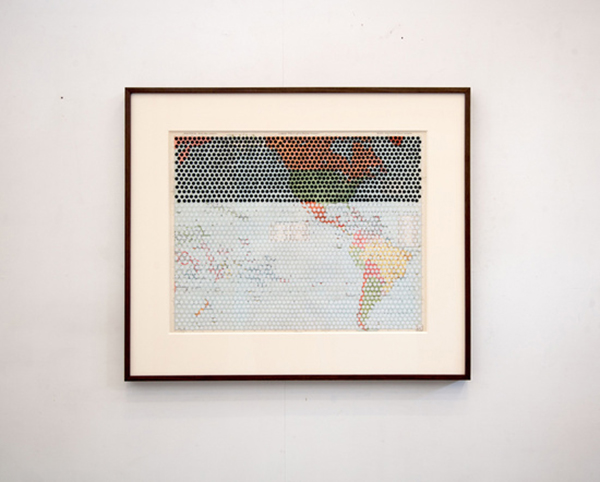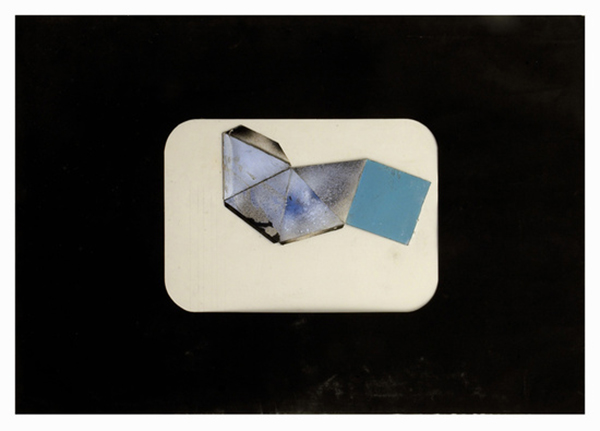ART CITIES:Zürich-Salon
 The group exhibition “Salon” is a curated presentation of modern masters and contemporary work. Over a period of four weeks, the exhibition transforms the ground floor exhibition spaces of Hauser & Wirth Gallery in Zürich into a display with works by over twenty artists, classic pieces of furniture and books.
The group exhibition “Salon” is a curated presentation of modern masters and contemporary work. Over a period of four weeks, the exhibition transforms the ground floor exhibition spaces of Hauser & Wirth Gallery in Zürich into a display with works by over twenty artists, classic pieces of furniture and books.
By Dimitris Lempesis
Photo: Hauser & Wirth Gallery Archive
The centrepiece of “Salon” is Rodney Graham’s light box tableau “Pipe Cleaner Artist, Amalfi, 61” (2013), depicting an artist building small sculptures from pipe cleaners in a quiet and contemplative domestic setting somewhere in the Mediterranean, with the implication that art should be a pleasant rather than stressful activity. The work harks back to a long-forgotten era invoking, according to Graham, “An image of a studio utopia in a period where modernism still seemed to hold possibilities”. Continuing with this theme, additional works examine craftsmanship and the sensibilities of the artistic material, from fabric and plaster to concrete, like “Yellow Head” (2005) by Richard Jackson or Paul McCarthy’s “Pot Head” (2009-17). Important ceramic pieces by Fausto Melotti and Ken Price, as well as Beate Kuhn and Johannes Nagel, offer another focal point. Fausto Melotti first studied mathematics and physics before graduating with a doctorate in electro-technical engineering in 1920. Soon after, he became interested in art and architecture. In 1928, Melotti settled in Milan to take classes at the Brera Academy which specialized in sculpture. The Los Angeles-based artist Ken Price revolutionised the conventional understanding of ceramics in the 1960s. His works are influenced by traditional ceramic art from Japan and Pueblo pottery, but jazz and the alternative underground of the era were also central to the development of his distinct and diverse oeuvre. Leon Golub’s work is about power and the recurring misuse of power through violence, not as an isolated inhuman phenomenon but as an expression of organised, often state-sponsored, oppression and brutality. A fundamental tension is at the heart of “The Clubbing” (2000). Considered one of the most influential European artists of the post-war period, Dieter Roth produced artworks in a great range of media, from artist’s books, graphics, drawings, and sculptures, to assemblages and installations, in the exhibition is on presentation “Gesammelte Werke, Postpaket” (1987). In addition, the exhibition presents works by artists including: Louise Bourgeois, Martin Creed, Allan Kaprow, Bharti Kher, Takesada Matsutani, Fabio Mauri, Pipilotti Rist, André Thomkins, Philippe Vandenberg and David Zink Yi.
Info: Hauser & Wirth Zürich, Limmatstrasse 270, Zürich, Duration: 16/11-16/12/17, Days & Hours: Mon-Fri 11:00-18:00, Sat 11:00-17:00, www.hauserwirth.com









